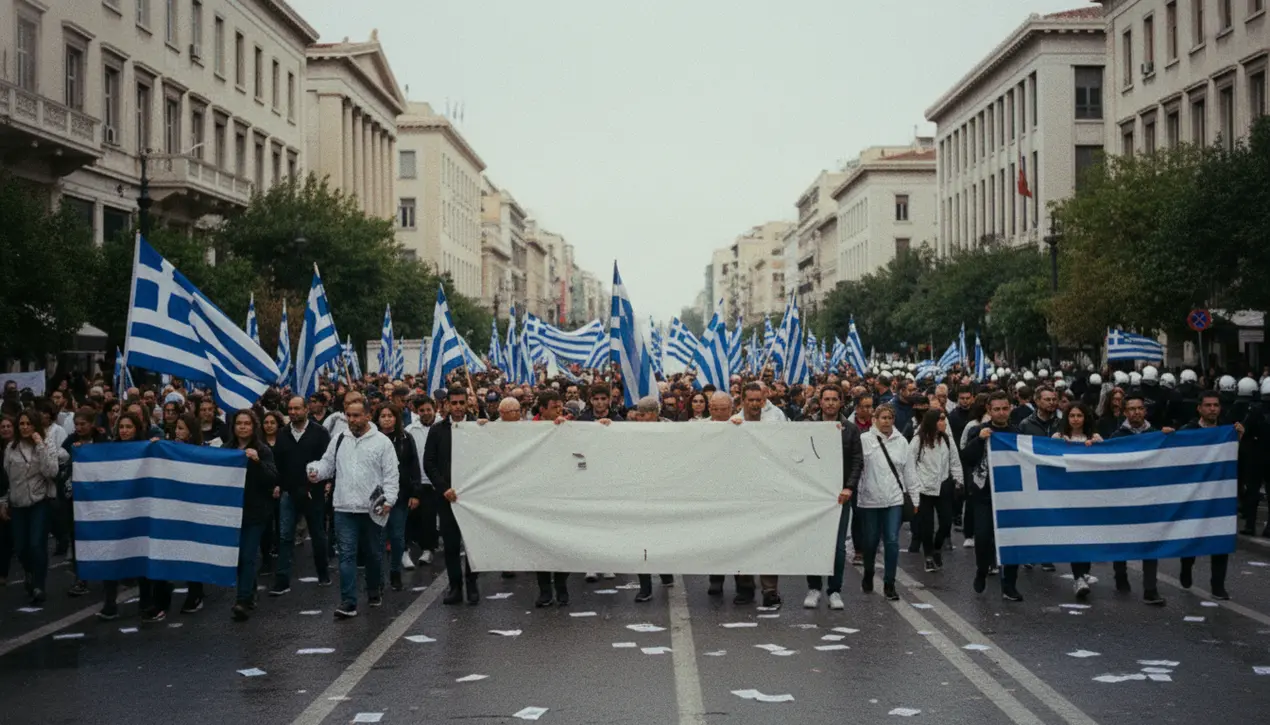
Politicsprotests & movementsStudent Protests
Athens March Commemorates 1973 Anti-Dictatorship Student Uprising.
EM
Emma Wilson
2 hours ago7 min read1 comments
The streets of Athens echoed once more with the chants of defiance and the solemn weight of memory as thousands marched to commemorate the 1973 student uprising at the Athens Polytechnic University, a pivotal revolt that fundamentally cracked the foundations of Greece's brutal military junta. This was not merely a parade of nostalgia; it was a living, breathing testament to a generation's sacrifice, an event that continues to pulse through the nation's political bloodstream nearly five decades later.The march, an annual ritual of national conscience, follows a well-trodden path from the Propylaea to the United States embassy, a route steeped in symbolism that directly links the domestic struggle for freedom with international complicity. The 'Regime of the Colonels,' which seized power in a 1967 coup, had imposed a stark reality of censorship, torture, and political persecution, systematically dismantling democratic institutions and silencing dissent with an iron fist.The students of the Polytechnic, however, became the unexpected vanguard of resistance. On November 14, 1973, they barricaded themselves inside the university, which by law was asylum ground, and operated a pirate radio station that broadcast messages of liberty across Athens, their famous cry, 'Bread, Education, Freedom!' becoming the mantra of a nation yearning to breathe free.The regime's response was swift and savage. In the early hours of November 17, a tank crashed through the university's main gate, leading to a bloody massacre whose exact death toll remains a contested and painful mystery, a ghost that still haunts the Greek political landscape.While the junta managed to temporarily crush the rebellion, the event proved to be its death knell, exposing its profound illegitimacy and brutality to the world and eroding its remaining support within the military and political elite, leading to its collapse just months later. For contemporary Greeks, the Polytechnic uprising is more than a history lesson; it is a foundational pillar of modern democracy, a sacred event invoked in political discourse to condemn authoritarian overreach and celebrate popular sovereignty.Yet, this year's march unfolds against a backdrop of simmering tensions, with participants drawing clear parallels between the fight against the colonels and current struggles over economic austerity, perceived erosions of academic asylum, and the rise of far-right elements. The sea of Greek flags and the somber hymns are interwoven with banners protesting current government policies, a clear indication that the spirit of 1973 is being actively harnessed to critique the present.Analysts note that the commemoration serves as both a unifying national ceremony and a potent political battleground, where different factions contest the legacy of the uprising to legitimize their current agendas. The emotional gravity of the event is palpable, a mixture of pride for the heroes of the past and a vigilant anxiety for the democratic freedoms they died to secure, ensuring that the memory of those three days in November continues to shape, challenge, and define the soul of modern Greece.
#featured
#Athens
#Greece
#student protest
#1973 uprising
#military dictatorship
#commemoration
#march
Stay Informed. Act Smarter.
Get weekly highlights, major headlines, and expert insights — then put your knowledge to work in our live prediction markets.
Comments
Loading comments...
© 2025 Outpoll Service LTD. All rights reserved.